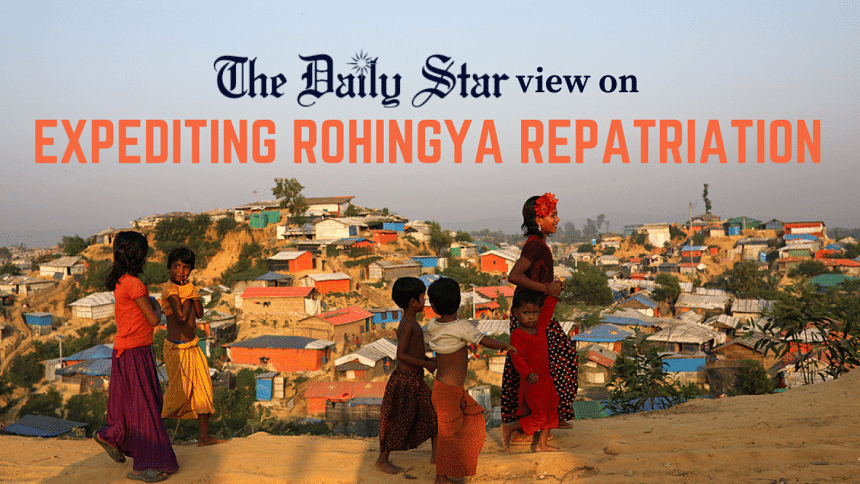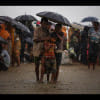There's no alternative to Rohingya repatriation

Prime Minister Sheikh Hasina has rightly pointed out to the United Nations High Commissioner for Human Rights, Michelle Bachelet, that Rohingya refugees in Bangladesh must eventually return to Myanmar. It's been almost five years since the Myanmar military carried out its most recent genocidal campaign against the Rohingyas, forcing around a million of them to flee to Bangladesh in search of safety. For a resource-constrained country like ours, hosting so many of refugees for five years has been a great challenge indeed.
The UN high commissioner, while expressing her disappointment over the lack of progress in regard to the repatriation process, warned the government to remain vigilant against the increasing anti-Rohingya rhetoric in Bangladesh, including stereotyping and scapegoating Rohingyas as the source of crime and other problems. This is an important point that needs to be discussed. Firstly, it should be recognised by all that the present circumstances are in no way the fault of the Rohingyas. Rather, they are the victims of barbaric actions by the Myanmar military and extremists. However, the reality that their unending presence here could lead to negative thinking also has to be recognised. This type of thinking is not beneficial to anyone, however, except maybe for those who want to exploit their vulnerability or those responsible for creating the crisis in the first place, as the focus shifts from them to the Rohingyas and their hosts. But that only makes quick repatriation all the more important.
The UN high commissioner also correctly observed that repatriation must occur once the conditions for their safety have been ensured in Myanmar. Otherwise, more Rohingya lives will be lost, and those who may survive the brutality of the Myanmar military will once again be forced to flee to Bangladesh. But this is where the international community, including the UN, must play a much bigger role. As far as Myanmar is concerned, right now it has no incentive to create such safe conditions for the Rohingyas – as it is the Rohingyas who are being forced to live in untenable and difficult conditions, and Bangladesh that is having to pay for it. Therefore, the international community has to put effective pressure on Myanmar so that it changes its Rohingya strategy.
Bangladesh can perhaps afford to host the Rohingyas for another year or two provided it receives a regular supply of assistance for the Rohingyas. But there has to be a definite timeline for their repatriation. We call on the international community to urgently work towards that end.


 For all latest news, follow The Daily Star's Google News channel.
For all latest news, follow The Daily Star's Google News channel. 








Comments